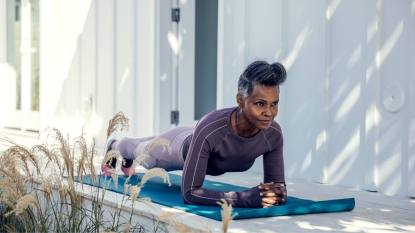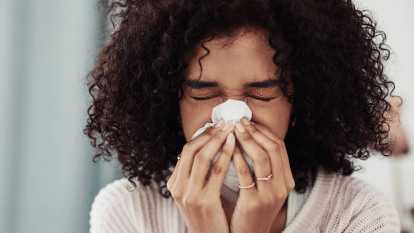MDs Reveal The 6 Best Foods For Bone Health — Plus The One Drink You’d Never Expect
The simplest things, like eating the pith along with citrus fruits, can have dramatic positive effects
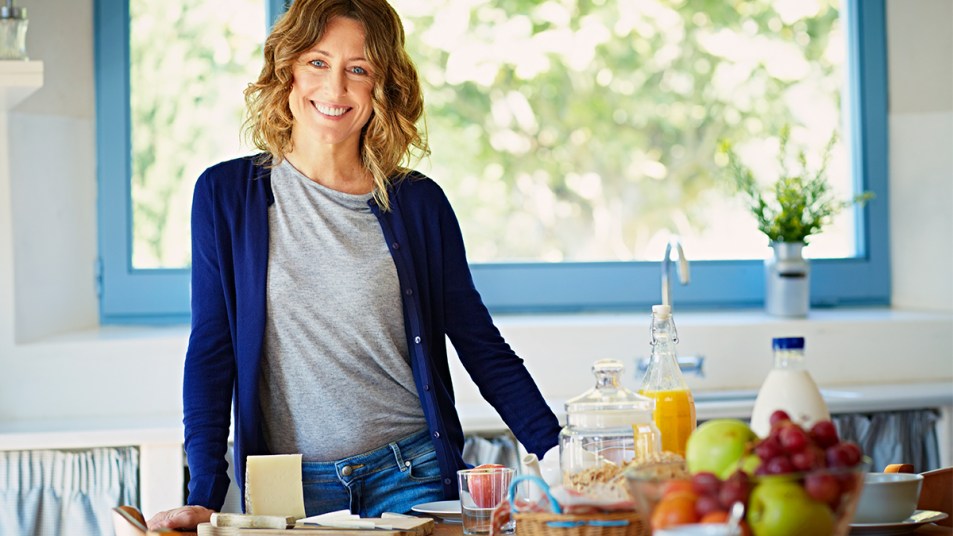
When you think of the best foods for bone health, calcium-rich options like cheese, yogurt and other dairy products likely come to mind. That makes sense, since doctors and nutrition experts have extolled the bone-building benefits of calcium for decades (more on this below). But it turns out there are many other nutrients — and foods which contain them — that can help strengthen bones. That’s critical for women as we age, since we lose bone mass with every passing year — a factor that increases our risk of falls, broken bones, mobility issues, pain and more. And while medications like bisphosphonates help preserve bone, they also present various side effects, so many women prefer not to take them. The good news? You don’t have to. Read on for the best foods for bone health.
How menopause raises the risk of bone loss
As with many health concerns that pop up around menopause, hormone flux is the biggest culprit. Ob/gyn Laura Corio, MD, author of The Change Before the Change explains, “Estrogen enhances the activity of osteoblasts (cells that deposit strengthening calcium into bones), and inhibits osteoclasts (cells that break down bone), so drop-offs in the hormone that begin during perimenopause can accelerate bone loss by up to 5% per year, increasing the risk of osteoporosis, the bone-thinning disease that impacts millions of women.”
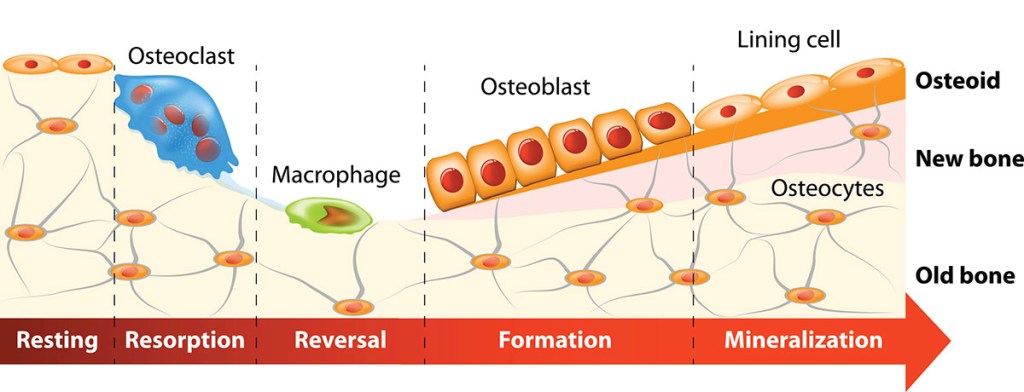
Related: Acting Like a Flamingo Strengthens Bones + More MD-Backed Ways to Ward Off Osteoporosis
The best foods for bone health
“After spending more than a decade trying to determine what the best diet for bone health is, we’ve concluded that there is no perfect diet,” says FIRST columnist Jayson B. Calton, PhD, a Fellow of the American Association of Integrative Medicine, Diplomate of the College of Clinical Nutrition, and a Board Certified Micronutrient Specialist. He and Mira Calton, CN are leading authorities on nutrition and micronutrient deficiencies and bestselling authors of Rebuild Your Bones: The 12-Week Osteoporosis Protocol (available at Amazon).
Other than incorporating the foods below, there’s only one other rule, according to Dr. Calton. “Whatever diet you choose, you have to get enough calories. If you’re calorie deficient, your body doesn’t do something called the ‘protein sparing effect,” he says. “In order for protein to do its job in building bone, you have to have enough calories there so this effect can take place.” In other words, if you don’t eat enough calories, your body starts burning protein for energy. When this happens, there isn’t enough protein left behind or ‘spared’ to help build muscle, bone and other tissue. (Click through to learn how sunflower seeds bolster bones, too.)
1. Best foods for bone health: Dairy products
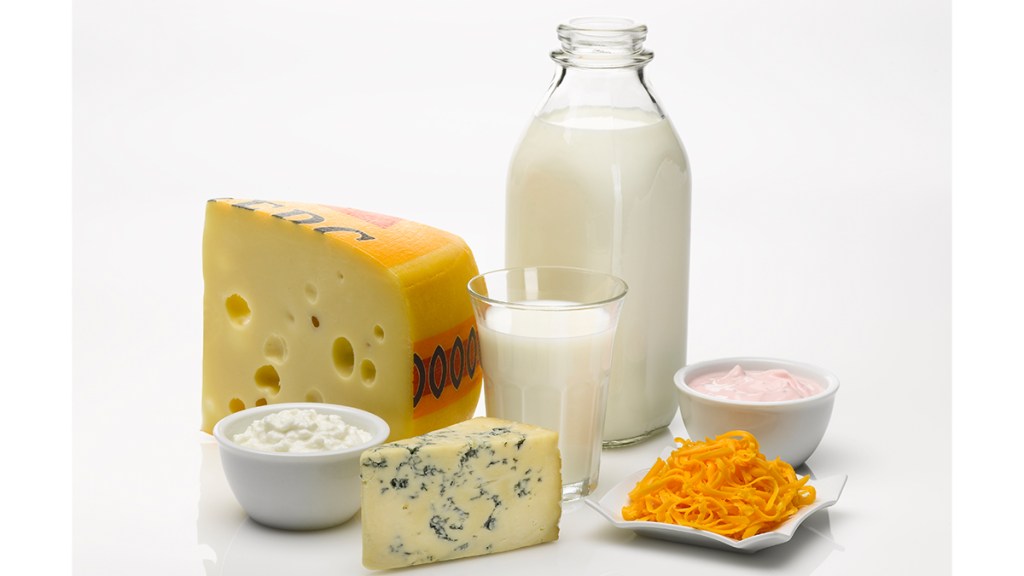
Dairy products, like milk and yogurt, are loaded with bone-friendly nutrients, including calcium and vitamin D, nutrients that work synergistically to improve bone health. (Click through for details on the link between low levels of vitamin D and fatigue.)
“There are several studies on the consumption of these products and a reduced risk of osteoporosis,” says Georgiy Brusovanik, MD, a nationally renowned orthopedist and spine surgeon based in Miami, Florida. “One such study found that every 200-gram [about 7 ounces] intake of dairy and milk was associated with anywhere between a 22% and 37% reduced risk of osteoporosis.” Another study, published in the journal Archives of Osteoporosis, found that eating dairy products, specifically yogurt and cheese, increased bone mineral density (BMD) in the hips, and reduced the risk of hip fractures.
Mira Calton recommends buying dairy products that are 100% raw and grass-fed, as items in this category are less likely to contain harmful additives.
Can’t tolerate dairy? “If you’re lactose-intolerant or vegan, you may consider fruit juices, soy beverages or mineral water, which also contain significant amounts of calcium,” Krupa B. Doshi, MD, an endocrinologist at the Mayo Clinic in Arizona agrees, “These beverages are suitable alternatives [to dairy].”
2. Best foods for bone health: Onions
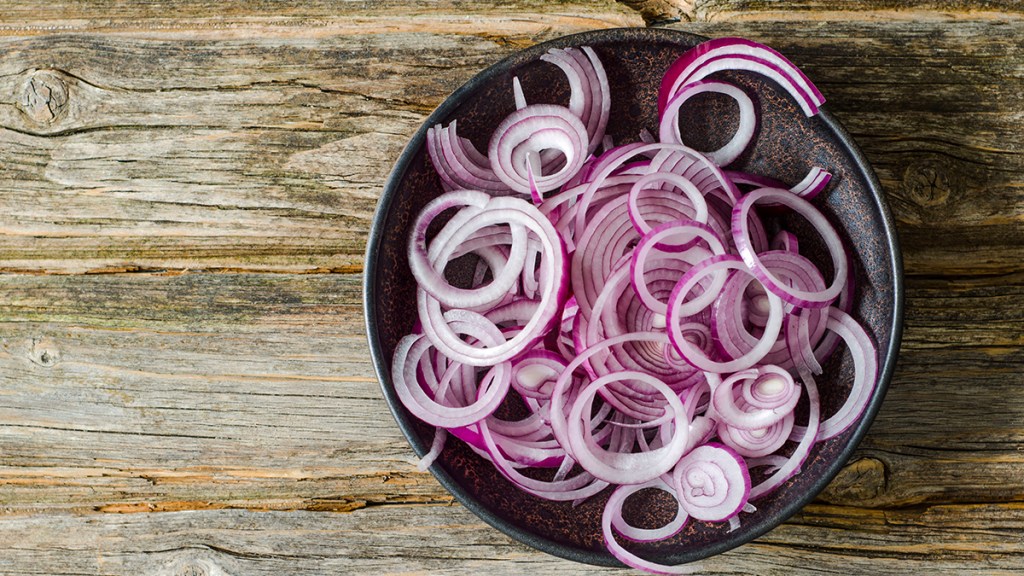
Onions add a burst of flavor to any dish, but they’re also good for your bones! Consider that onions contain the plant compound quercetin, which has been shown to increase bone density. (Click through for more benefits of quercetin.) Onions also contain inulin, a fiber that increases the absorption of calcium and magnesium — nutrients essential for bone health.
Onions are particularly beneficial for perimenopausal and postmenopausal women. A study published in the journal Menopause found that older women who eat onions regularly reduced their risk of hip fractures by up to 20%.
3. Best foods for bone health: Seafood
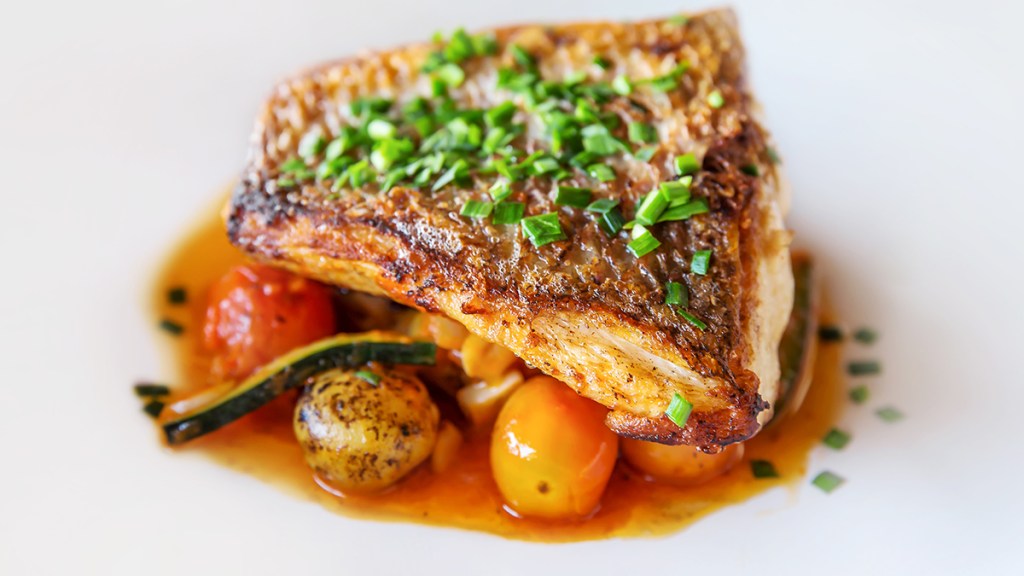
Bone is 50% protein by volume, but only 20% calcium by weight. When bones break down due to estrogen deficiency or calcium deficiency, protein is also degraded. “So, to build lost bone, you need not just calcium, but protein as well,” explains Dr. Calton. “That’s why you want to eat at least 100 grams of protein a day, regardless of the diet you choose.” (Click through to learn how protein pasta speed weight loss.)
Dr. Doshi agrees, noting that protein and calcium are “key nutritional building blocks for good bone health.” And while all protein is beneficial to bone health, experts agree that sources that contain omega-3 fatty acids are best.
“Omega-3s mostly come from fatty fish. They’re also found in plant sources, like chia seeds and flax seeds, but for people with osteoporosis, animal sources are best,” says Dr. Calton. “What omega-3s do is amazing! They stop osteoclasts — the cells that break down bone — from activating, so bone building can take place.”
Dr. Brusovanik adds, “there are some interesting cases of high bone density for patients who eat a diet rich in shellfish, oysters, shrimp, and crab meat. These foods are high in vitamin D, calcium, phosphorus and zinc, which can be used to slow osteoporosis, particularly in women.”
Science backs these insights up. In one study, researchers at Tufts, Northeastern, Harvard and Boston University observed the eating habits of 623 older adults over four years. The results? Participants who ate three or more servings of fish per week, especially darker-fleshed fish, experienced a lower loss of bone density.
As with dairy, consuming high-quality seafood is important. “Try to buy seafood that’s non-GMO (genetically modified) and wild caught,” says Dr. Calton. “There are no bad foods in nature; only human beings who have made them bad, so avoid processed meats whenever possible.”
4. Best foods for bone health: Prunes
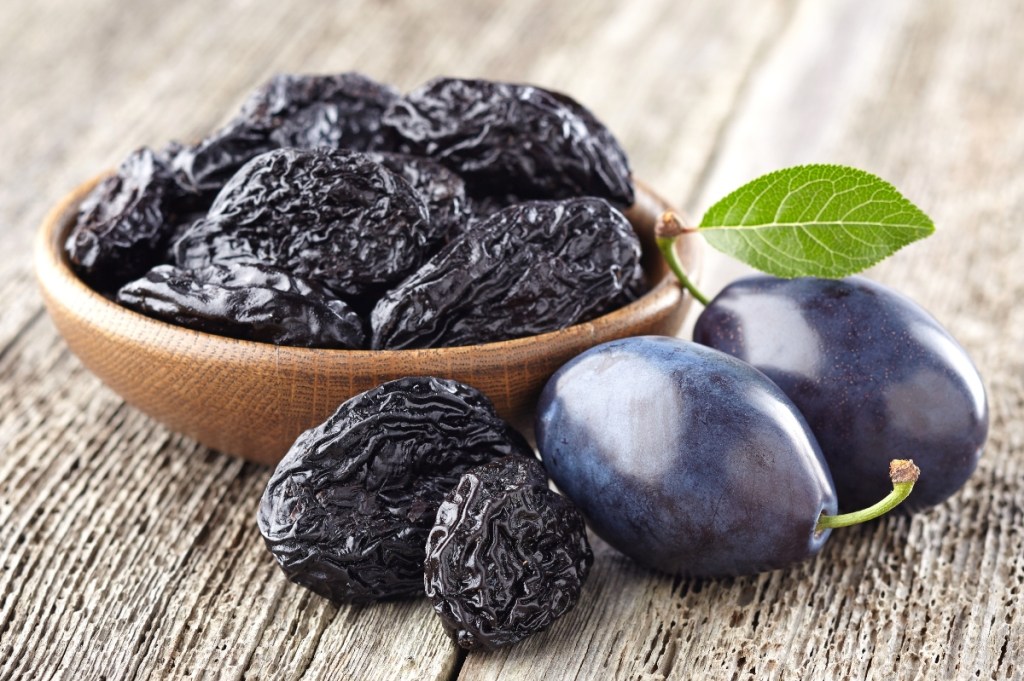
Eating prunes every day for a year stopped the loss of bone mass and increased the spine and forearm bone density of postmenopausal women in a study at The Florida State University in Tallahassee. Study participants ate about eight pitted prunes a day — a 230-calorie dose — yet none gained weight. It seems the filling high-fiber fruit helps women naturally cut calories elsewhere.
In another study published in The American Journal of Clinical Nutrition, researchers found that postmenopausal women who ate five or six prunes daily had improved bone mass density in their hips. Scientists attributed these benefits to anti-inflammatory properties in prunes that help prevent bone resorption (or bone loss).
Note: Prunes are well-known for their laxative effect, which is why experts recommend gradually working up to eight a day. Try tossing a handful of chopped prunes into quick breads, hot cereal and grain dishes, or eating fresh plums when they’re in season.
5. Best foods for bone health: Eggs
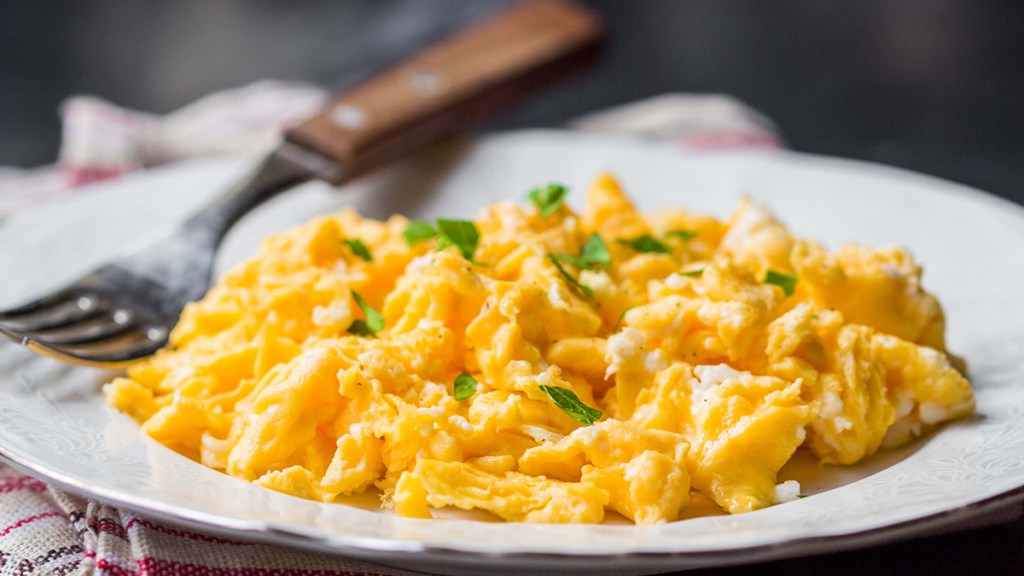
Eggs are good for your bones! They contain several compounds linked to improved bone density, including vitamin D and zinc. Eggs are also anti-inflammatory and a great source of protein — two things Dr. Calton recommends in any bone-friendly diet.
One study published in the Journal of Mid-Life Health investigated the link between eating eggs and whole-body (WB) bone mineral density. Researchers observed the eating habits of 165 seniors and found a positive correlation between WB bone mineral density and egg consumption. These findings led the team to conclude that eating eggs may reduce osteoporosis and prevent fractures in people 65 and older.
(Click through to learn how to lose weight with the keto kickstart egg fast.)
6. Best foods for bone health: Citrus fruit
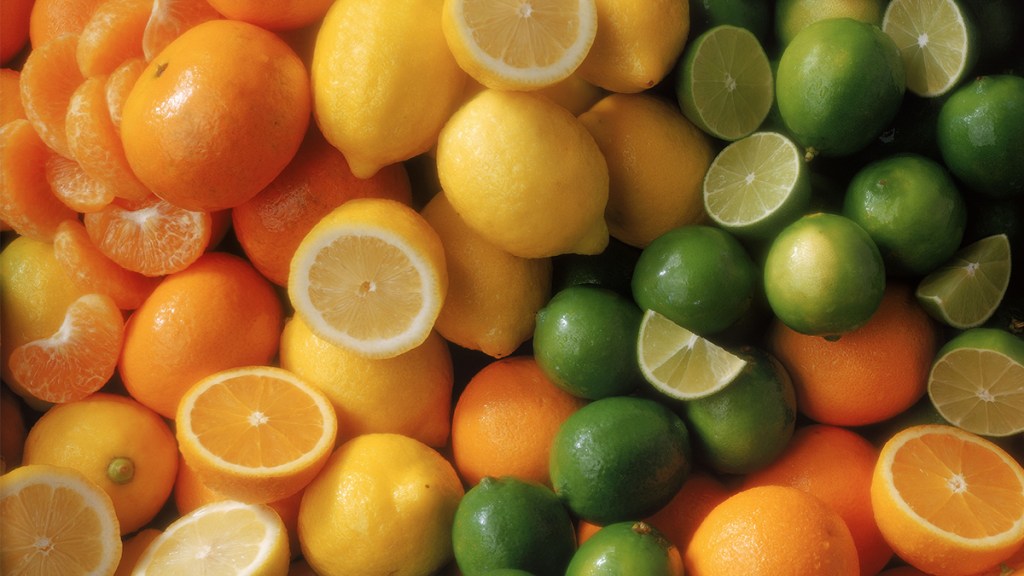
Citrus fruits boast several bone-building ingredients, including calcium and magnesium. They’re also rich in hesperidin, a plant compound primarily found in the the solid tissues of the citrus fruits (the rind and the pith) and in citrus juices. And in an animal study published in the Journal of Nutrition, researchers found that when mice that had their ovaries removed (to simulate menopause) were fed a diet containing hesperidin, they experienced less bone loss and fewer osteoclasts than mice that didn’t consume hesperidin. (Click through for more benefits of hesperidin)
7. Best foods for bone health: Alcohol (!)
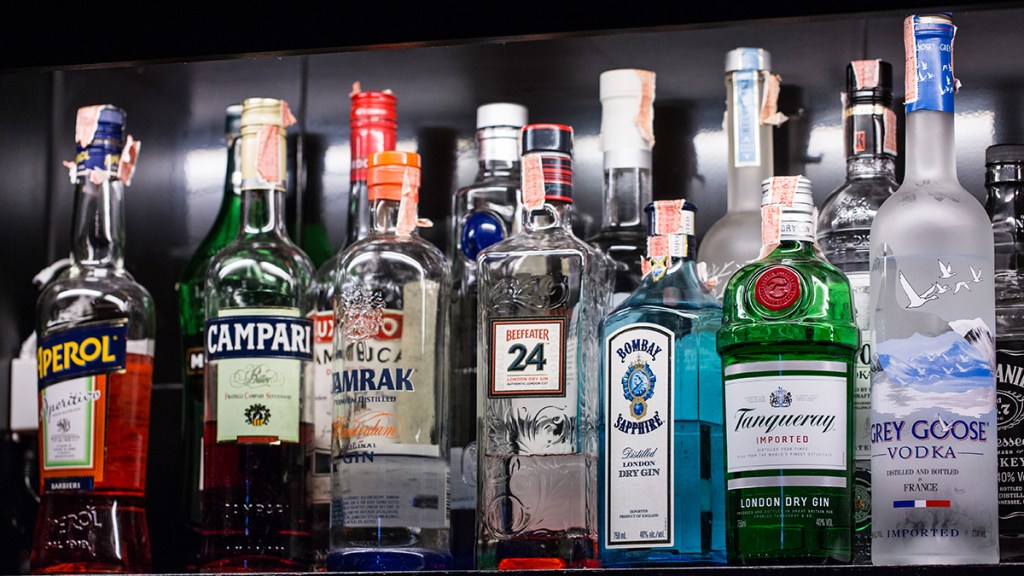
“Here’s one that’s a lot more fun than milk,” says Mira Calton. “It’s surprising to many people, but adding a little bubbly to your week is very beneficial for your bones.”
She cites a study published in the journal Menopause, which found that consuming about two small glasses of wine a day reduced bone turnover associated with menopause. (Increased bone turnover is linked with bone loss.) Another study, conducted by Finnish researchers, found that women who drank more than three alcoholic drinks a week had significantly higher bone density than women who abstained.
Related: How Having a Glass of Wine With Dinner Can Powerfully Improve Health
What foods to avoid for healthy bones
As you can see, eating a whole foods diet with plenty of nutrient-rich fruits and vegetables is the best way to keep your bones healthy. When it comes to foods to avoid. Dr. Calton advises steering clear of foods that cause inflammation. “Inflammation activates osteoclasts, the cells that break bone down,” explains Dr. Calton. Foods that trigger this tend to be unhealthy. They include snacks like chips and crackers; processed meats; and sugary drinks, like soda.
And Cindy Geyer, MD, a functional medicine physician at The UltraWellness Center in Lenox, Massachusetts, suggests keeping a close eye on your sugar intake. “A high-sugar diet has been shown to dampen calcium absorption,” she explains. For that reason, she says, “Aim for no more that 25 grams of added sugars per day, and keep an eye out for sugars in surprising places, like bottled salad dressing, jarred pasta sauce and packaged bread.”
What to do if you’re concerned about bone loss
Bone loss often develops slowly, so it’s important to visit your doctor if you’re concerned. “Early detection can help you take action to prevent bone loss,” Dr. Doshi says. “If you have a family history of osteoporosis, speak with your healthcare provider about screening options, such as a DEXA scan. This is a painless exam that can help determine your bone density. There are also prescription treatments available to strengthen bones that may be good options for you to consider.” (Click through to learn about the side effects of bone-building drugs like Fosamax).
This content is not a substitute for professional medical advice or diagnosis. Always consult your physician before pursuing any treatment plan.
For more bone bone-health tips, keep scrolling!
Study: a Low-Calorie, High Protein Diet Aids In Losing Body Fat and Improving Bone Density
Make Walking More Exciting: 6 Treadmill Moves That Boost Balance, Strength and Bone Density
A version of this article originally appeared in our print magazine, First for Women.






